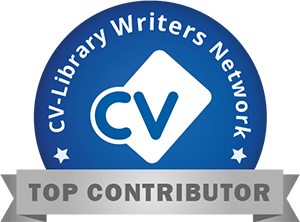CEIAG & Careers Leaders
Inspiration: the 'I's have it
Saturday 24th May 2014
This blog is a guest blog from Johnny Rich of Push, one of the many organisations that deliver activities that can contribute to the delivery of a solid framework for careers as stipulated in the new statutory duty. He gives an insight into the new statutory duty from the other side of the fence. Those companies that are working hard to provide schools with excellent and cost effective content to enrich their student's understanding of the pathways they have access to post 16.
The DfE's latest version of the statutory duty on careers guidance in schools and colleges (published in April) is a significant improvement on the last set from 2013[i]. Interestingly, one word has crept into the document title while another has been quietly smuggled out.
Both the words begin with 'i'. The one that has appeared is 'inspiration'. The one that's gone is 'independent'. The reasons tell an enlightening story about the development of Michael Gove's policies on careers guidance.
Back in 2012, Gove's department had sliced over £450Mn from various Government-funded programmes to support careers advice (most notably Connexions) and dumped the responsibility on the doorstep of the schools - without giving them any money to deliver on it nor any regulatory framework to check.
He was warned that, in the face of competing priorities, schools would be unlikely to take on the responsibility with much enthusiasm or professionalism. So the 2013 guidance was published to command schools to do it with the edict that guidance must be 'independent'.
This was because Gove felt he needed to make sure schools' careers guidance didn't simply exploit 'advising' students as a means to help the school do well in the new performance measures he was in the process of introducing, namely the proportion of students that took A levels and progressed to so-called "top" universities. (By the way, I don't think I've ever met a teacher or careers adviser who needed to be told to act in their students' best interests over the schools' and it's an insult to suggest they might.)
There were problems with this though. There was still no money - nor process for the quality control - of the schools' arrangements for careers guidance. Study after study showed the impact had been to fly a wrecking ball through the careers advice provision. Gove didn't mind too much, but he did mind about employers, sector skills councils and others complaining that the skills pipeline had a blockage.
Gove does not like nor respect professional careers practitioners and has not made any secret of the fact. Under questioning from the House of Commons Education Select Committee last December, he described careers professionals as ineffective, saying, "It is certainly the case that we should do more to engage employers with schools and vice versa. What I emphatically do not believe is that we need a cadre of careers advisers to operate in between those two." In private, he has been even less circumspect.
This is why the new word, 'inspiration' appeared. It is a compromise cooked up by civil servants between a sensible policy and Gove's strange delusion.
Gove believes careers advice is like a fairy tale: the moment the gaze of a pupil and an inspiring employer meet across a room, they will find each other. Love and fate will conspire to bring them together.
Or maybe not love and fate. Perhaps he thinks that being inspired will be sufficient to drive the pupil to understand what they need to do and to achieve at the right level and in the right areas. Or maybe it won't be sufficient on its own for everyone... but that in itself will sort out the worthy from the waste of space.
Needless to say, I do not agree. Yes, careers guidance should be inspiring, but that's not all it needs to be. An employer might inspire a student - or they might bore them. An employer might help them to understand what qualifications they will need in five or ten years - or they might not be expert in such matters. An employer might be independent - or they might act in the interests of their organisation rather than those of a student they've only just met.
I am not saying employers should not be involved. Quite the opposite. They are a critical part of a blended approach of activities that, together, are inspiring, independent, informative and interactive. Four i-words for Mr Gove.
For me - and most careers practitioners - this isn't a new way of thinking. My own organisation, Push, has been putting those four i-words into practice for over 20 years. Push is a social enterprise which, among other things, runs presentations and follow-up support in hundreds of schools around the UK. To us, being inspiring is only the first step.
We engage students by running highly entertaining talks and workshops on everything from university choices to employability skills. Some of our presenters moonlight as stand-up comedians. But being engaging only gets them interested. We also have to have something to say. We need to be expert about the subject matter and we need to work in no one's interests but the students'.
It may not be exactly what Gove intended, but one of the key reasons I believe the DfE's latest guidelines are an improvement is because the explicit inclusion of the word 'inspiring' allows careers support to be about more than work experience, meaning that Push and organisations like ours, tick the boxes when it comes to helping schools met their statutory requirements.
Johnny Rich is Managing Director of Push, a consultant on education and careers and an author (see johnnyrich.com)
[i] https://www.gov.uk/government/uploads/system/uploads/attachment_data/file/207240/Securing-Independent-Careers-Guidance.pdf
www.push.co.uk





